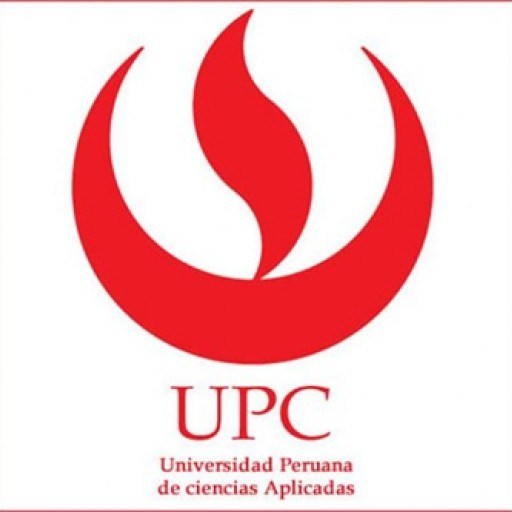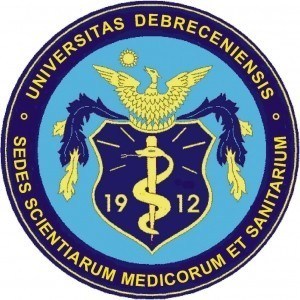The Nuclear Engineering program at the University of Applied Sciences is a comprehensive and innovative educational offering designed to equip students with the knowledge and skills necessary to excel in the field of nuclear technology. This program combines theoretical foundations with practical applications, ensuring that graduates are well-prepared to meet the demands of the rapidly evolving energy sector. Throughout the course of study, students will explore core subjects such as nuclear physics, reactor engineering, radiological safety, nuclear instrumentation, and waste management. The curriculum emphasizes hands-on experience through laboratory work, simulations, and internships, fostering a deep understanding of nuclear systems and their societal implications.
The program is tailored to address current industry challenges, including safety protocols, regulatory compliance, and sustainable energy solutions. Students will gain proficiency in designing, operating, and maintaining nuclear reactors, as well as understanding the environmental and health impacts associated with nuclear technologies. The university collaborates with leading industry partners, research institutions, and regulatory agencies to provide students with real-world insights and networking opportunities. Graduates of this program are highly sought after in the nuclear energy sector, research centers, and governmental bodies responsible for energy policy and safety standards.
Moreover, the program encourages critical thinking, ethical considerations, and innovative problem-solving to prepare students for leadership roles in nuclear engineering. Upon graduation, students will possess a versatile skill set applicable to various sectors, including power generation, medical applications, and nuclear safety management. The program is committed to fostering a safe, responsible, and sustainable approach to nuclear technology, aligning with global efforts to ensure clean and reliable energy sources for the future. With state-of-the-art facilities and experienced faculty members, the Nuclear Engineering program at the University of Applied Sciences provides an excellent platform for aspiring engineers to develop their careers and contribute to advancing nuclear science and technology.
The Bachelor’s Degree in Nuclear Engineering at the University of Applied Sciences (UPC) offers a comprehensive curriculum designed to prepare students for careers in the nuclear industry, research, and technology development. Throughout the program, students gain in-depth knowledge of nuclear physics, reactor engineering, radiological protection, nuclear safety, and environment impact assessment. The program emphasizes both theoretical foundations and practical skills, ensuring graduates are well-equipped to address the complex challenges faced in the field of nuclear technology.
Coursework includes core modules such as nuclear reactor physics, thermal hydraulics, nuclear materials, and radiation shielding. Students also explore related disciplines including electrical engineering, thermodynamics, and systems control, which are essential for understanding and managing complex nuclear systems. Practical laboratory work complements theoretical learning, providing hands-on experience in reactor operation, safety procedures, and instrumentation calibration.
The program promotes research engagement through projects and internships, often in collaboration with industry partners and research institutions. This hands-on experience allows students to develop critical thinking, problem-solving, and technical skills applicable to real-world scenarios. Special attention is given to safety culture and ethical considerations in the operation and management of nuclear facilities, preparing students to uphold high safety standards throughout their careers.
Graduates of the program are prepared for professional roles in nuclear power plants, research reactors, radiological facilities, and consultancy firms. They are equipped with the expertise required for design, operation, and maintenance of nuclear systems, as well as for conducting risk assessments and implementing safety protocols. The program also provides a solid foundation for those who wish to pursue further studies or engage in scientific research in the nuclear field.
With a focus on innovation and sustainable development, the curriculum integrates contemporary issues such as nuclear waste management, decommissioning, and advancements in nuclear reactor technology. The program’s multidisciplinary approach ensures graduates are versatile and capable of contributing to various sectors within the nuclear industry.
The University of Applied Sciences (UPC) is committed to equipping students with the skills necessary for a safe, efficient, and environmentally responsible nuclear sector. Through innovative teaching methods, industry collaboration, and state-of-the-art facilities, students receive an education that is both academically rigorous and practically relevant. Upon completing this program, graduates are well-positioned to meet the demands of the evolving nuclear landscape and contribute to energy solutions that are vital for sustainable development.
The Bachelor's Degree Program in Nuclear Engineering at the University of Applied Sciences (UPC) requires students to successfully complete a total of 180 ECTS credits over the course of three years. The curriculum is designed to provide students with comprehensive knowledge in nuclear science, reactor physics, radiation protection, nuclear safety, and engineering principles. The program includes core courses such as Introduction to Nuclear Engineering, Thermodynamics, Material Science, Nuclear Reactor Technology, Radiation Dosimetry, and Nuclear Plant Operation. Additionally, students must undertake advanced modules in Nuclear Safety Analysis, Nuclear Waste Management, and Regulatory Frameworks. Practical training is an integral part of the program, with students participating in laboratory work, simulation exercises, and internships at certified nuclear facilities. To ensure a well-rounded education, coursework also covers foundational topics like mathematics, physics, and computer programming. Students are required to complete a final thesis project that involves research, simulation, or experimental work in a specified area of nuclear engineering, demonstrating their ability to apply theoretical knowledge to real-world problems. Admission to the program typically requires a high school diploma with emphasis on mathematics and physics, and applicants must meet the university’s entry standards. Language of instruction is English, and the program prepares graduates for careers in nuclear power plants, research institutions, safety agencies, and international organizations working in nuclear technology and energy. Throughout the program, students are encouraged to develop competencies in problem-solving, critical thinking, safety culture, and communication skills, which are essential for the demanding and highly regulated field of nuclear engineering. The program also promotes awareness of environmental issues related to nuclear energy and emphasizes ethical practices in the handling of radioactive materials. Graduates are eligible to pursue further specialization at master's level or enter professional practice in accordance with national and international nuclear safety standards.
The financing of the Nuclear Engineering program at the University of Applied Sciences (UPC) is primarily based on a combination of tuition fees, government funding, and potential external funding sources. As a publicly funded institution, UPC offers subsidized education costs for domestic students, which significantly reduces the financial burden for eligible applicants. Tuition fees for international students may vary and are typically higher, with specific rates published annually on the university’s official website.
Students enrolled in the program may have access to various financial aid options, including scholarships, grants, and student loans. The university collaborates with government agencies and private organizations to facilitate scholarship opportunities aimed at supporting students pursuing degrees in engineering disciplines, including Nuclear Engineering. These scholarships often target high-achieving students, those demonstrating financial need, or students contributing to research projects related to nuclear technology and safety.
Furthermore, students may benefit from work-study programs or part-time employment opportunities within the university or affiliated research centers, which can help offset education costs. The university also encourages students to seek external funding through national and European research grants, especially those involved in scientific research and technological development projects in nuclear sciences.
International students should consider additional costs such as health insurance, accommodation, and living expenses, which are not covered by the university’s core funding but are necessary for comprehensive financial planning. The university provides detailed guidance on financial planning and available funding options through its financial aid office and official publications.
Overall, the combination of government subsidies, university scholarships, external funding opportunities, and personal financial planning constitutes the primary means of financing studies at UPC for students in the Nuclear Engineering program.
The Nuclear Engineering program at the University of Applied Sciences (UPC) is designed to prepare students for a career in the nuclear industry, focusing on the technical, safety, and regulatory aspects of nuclear power generation and related fields. The program emphasizes practical skills and applied science, integrating theoretical knowledge with hands-on experience through laboratory work, internships, and project-based learning. Students are introduced to core disciplines such as reactor physics, thermodynamics, radiation protection, and nuclear materials, alongside topics like energy management and environmental impact assessment.
The curriculum is structured to promote a comprehensive understanding of nuclear technology, ensuring graduates are well-equipped to handle engineering challenges and maintain safety standards within nuclear facilities. UPC’s program collaborates with industry partners and research institutions, providing students with opportunities to engage in cutting-edge research and real-world projects. The program also addresses the regulatory framework governing nuclear energy, preparing students to work within national and international safety protocols.
Graduates of the Nuclear Engineering program are prepared for diverse careers including reactor operation, nuclear safety analysis, regulatory compliance, research and development, and consulting. The program aims to foster innovative thinking and problem-solving skills, essential for advancing nuclear technology and supporting sustainable energy policies. Through its multidisciplinary approach, the program integrates engineering principles with environmental considerations, preparing students to contribute to the responsible development of nuclear energy. The faculty comprises experienced professionals with expertise in nuclear science, engineering, and safety, ensuring high-quality education based on current industry standards and technological advancements. Overall, the program at UPC offers a robust foundation for students committed to contributing to the safe, efficient, and sustainable use of nuclear energy worldwide.










